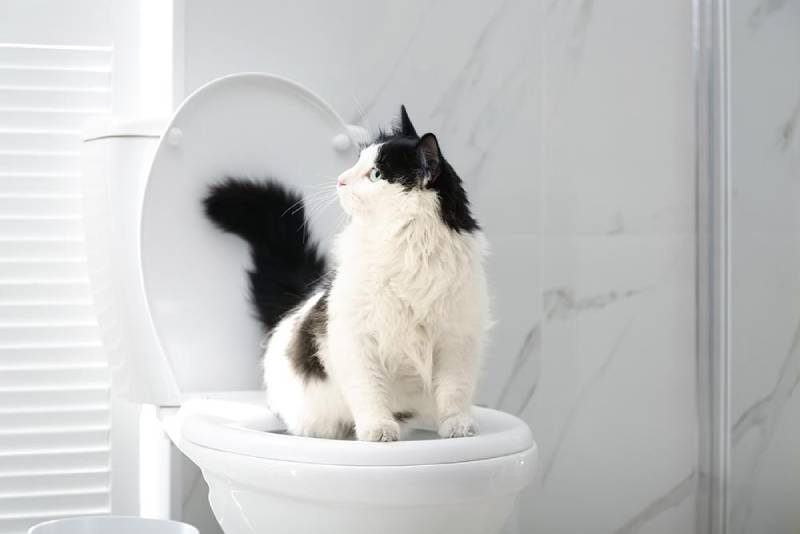Reasons Flushing Cat Poop Down Your Toilet Is Harmful - Suggestions for Correct Handling
Reasons Flushing Cat Poop Down Your Toilet Is Harmful - Suggestions for Correct Handling
Blog Article
Almost everyone has got their own individual conception on the subject of How to Dispose of Cat Poop and Litter Without Plastic Bags.
Intro
As pet cat proprietors, it's essential to bear in mind exactly how we deal with our feline friends' waste. While it may appear practical to flush cat poop down the commode, this technique can have damaging repercussions for both the atmosphere and human health and wellness.
Alternatives to Flushing
Fortunately, there are more secure and a lot more liable methods to get rid of cat poop. Take into consideration the complying with alternatives:
1. Scoop and Dispose in Trash
One of the most typical method of getting rid of feline poop is to scoop it right into a naturally degradable bag and toss it in the trash. Make certain to utilize a committed trash inside story and deal with the waste promptly.
2. Use Biodegradable Litter
Go with naturally degradable pet cat litter made from products such as corn or wheat. These clutters are environmentally friendly and can be securely dealt with in the garbage.
3. Hide in the Yard
If you have a yard, think about hiding pet cat waste in a designated location far from vegetable yards and water sources. Make sure to dig deep adequate to prevent contamination of groundwater.
4. Set Up a Pet Waste Disposal System
Invest in a family pet garbage disposal system specifically developed for pet cat waste. These systems make use of enzymes to break down the waste, decreasing odor and ecological influence.
Health Risks
In addition to ecological problems, flushing feline waste can likewise posture health risks to people. Feline feces might have Toxoplasma gondii, a parasite that can cause toxoplasmosis-- a potentially serious ailment, particularly for pregnant ladies and individuals with damaged body immune systems.
Environmental Impact
Flushing feline poop presents unsafe microorganisms and bloodsuckers right into the water, posing a significant risk to aquatic communities. These pollutants can negatively affect aquatic life and concession water high quality.
Final thought
Accountable family pet ownership prolongs beyond providing food and shelter-- it also involves proper waste monitoring. By refraining from flushing pet cat poop down the commode and selecting alternate disposal techniques, we can reduce our environmental footprint and shield human wellness.
Why You Should Never Flush Cat Poop Down the Toilet
A rose by any other name might smell as sweet, but not all poop is created equal. Toilets, and our sewage systems, are designed for human excrement, not animal waste. It might seem like it couldn’t hurt to toss cat feces into the loo, but it’s not a good idea to flush cat poop in the toilet.
First and foremost, assuming your cat uses a litter box, any waste is going to have litter on it. And even the smallest amount of litter can wreak havoc on plumbing.
Over time, small amounts build up, filling up your septic system. Most litter sold today is clumping; it is made from a type of clay that hardens when it gets wet. Ever tried to scrape old clumps from the bottom of a litter box? You know just how cement-hard it can get!
Now imagine just a small clump of that stuck in your pipes. A simple de-clogger like Drano isn’t going to cut it. And that means it’s going to cost you big time to fix it.
Parasitic Contamination
Believe it or not, your healthy kitty may be harboring a nasty parasite. Only cats excrete Toxoplasma in their feces. Yet it rarely causes serious health issues in the cats that are infected. Most people will be fine too if infected. Only pregnant women and people with compromised immune systems are at risk. (If you’ve ever heard how women who are expecting are excused from litter cleaning duty, Toxoplasma is why.)
But other animals may have a problem if infected with the parasite. And human water treatment systems aren’t designed to handle it. As a result, the systems don’t remove the parasite before discharging wastewater into local waterways. Fish, shellfish, and other marine life — otters in particular — are susceptible to toxoplasma. If exposed, most will end up with brain damage and many will die.
Depending on the species of fish, they may end up on someone’s fish hook and, ultimately on someone’s dinner plate. If that someone has a chronic illness, they’re at risk.
Skip the Toilet Training
We know there are folks out there who like to toilet train their cats. And we give them props, it takes a lot of work. But thanks to the toxoplasma, it’s not a good idea.

I hope you liked our piece on How to Dispose of Cat Poop and Litter Without Plastic Bags. Thanks so much for taking a few minutes to browse our post. Sharing is nice. Helping others is fun. Thanks for your time. Please check up our blog back soon.
Maintenance Sign-Up Report this page